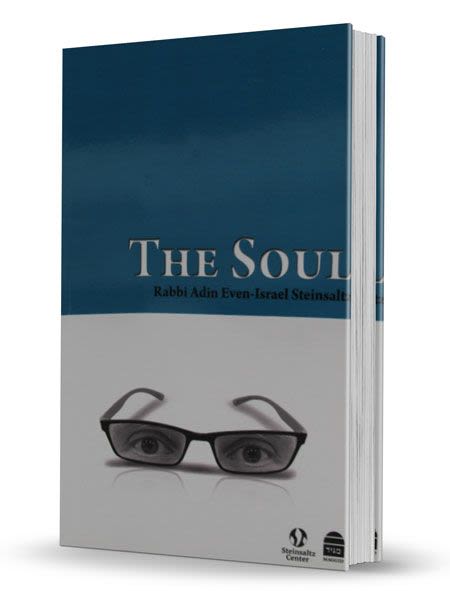
Emor: Setting Our Standard
Rather than setting our sights on mediocrity, we can dare to dream. The challenge is not reaching our destination; the challenge is to...

Rather than setting our sights on mediocrity, we can dare to dream. The challenge is not reaching our destination; the challenge is to discover the right path.
Selling out is hard work. Most teenagers join the mass migration from individuality to high school stereotype. Every kid manifests this departure from “nerd-hood” to “normalcy” in their own way by wearing the costumes of their prescribed clique. Some like to dress in black and hate their parents. Others spend all their free time in the gym. Girls start wearing clothes several sizes too small or sewing anti-establishment patches all over themselves and their belongings. To accompany the uniform, teenagers think, talk, and act the same. Achievement and talent is shunned, while mediocrity is embraced. They want to be cool, and moral compromises are justified because, hey, nobody is perfect.
Most of the time, this defeatist attitude remains throughout a person's life. Resting on his laurels, Mr. Joe Average defines himself by the successes and failures of his neighbors. The nose rings and ripped t-shirts are replaced with swanky polo shirts and Dockers, and materialism replaces cool as the highest pursuit. Pastimes are petty and pleasure is momentary. As the noted author George Orwell wrote, “The essence of being human is that one does not seek perfection”. Jewish values are very different from his definition of ‘the essence of humanity.’
In Parshat Emor it states that all animals to be offered up to God must be unblemished. The Kohanim, the holy priests who serve in the Beit Hamikdash, the Temple, must also be blemish-free. When serving God, perfection and wholeness take precedence over any other quality possessed by either animal or man. This concept is also seen at the Shabbat table. It is better to say hamotzi over a whole loaf of challah than on a larger or better quality piece of bread. The lesson is clear and initially uncomfortable; God demands that we, too, strive to be complete. Our goal is perfection.
Yet all of creation is inherently flawed. According to the Rambam’s thirteen principles of faith, only God is completely perfect. While God doesn’t demand that we change our nature, in Parshat Emor, He instructs us to change our perspective of our place in the world. In the scheme of world history, our lives are insignificant. Amongst the animal kingdom, we are not the fastest, strongest or biggest. Even within our own species, there will always be someone smarter, better looking, wealthier, etc. than ourselves. Our destiny is subject to challenges with circumstances entirely beyond our control.
Rabbi Zev Leff explains, “…Whether one does more or less is insignificant. What one actually accomplishes in the world is in the hands of Hashem. The main consideration is that one directs and concentrates his heart towards Heaven. What we can control is the intensity of our desire and purity of our effort in the quest for perfection (Outlooks and Insights, p154).”
In the Midrash, Rabbi Yitzchak points out that “Torah teaches us that when a person does a mitzvah, he should do so with a complete and happy heart. Had Reuven known the Torah would record that he attempted to save Yosef from his brothers, he would have put him on his shoulders and run home with him (Yalkut Shimoni Rut 604). Rabbi Yitzchak teaches us to be aware that any mitzvah we do, endures forever, and that therefore we should strive to perfect them.
If we could grasp the profound impact that we make each time we perform a mitzvah, we would take more pride in them than if we had written an academy award winning play, won the Super Bowl, or painted the Mona Lisa.
A popular car company boasts that their cars reflect the “passionate pursuit of perfection.” If this is true of a piece of machinery that in ten (or twenty) years will be a hunk of sheet metal in a scrap yard, how much more care must we devote to our mitzvot that are recorded for all eternity?
Aspiring to perfection is challenging, to say the least. ‘Perfectionists’ are often viewed in a negative light. But achieving perfection is a process. God knows that we are human, and that for change to endure, it must be gradual.
We read, “You shall count for yourself – from the morrow of the rest day, from the day when you bring the Omer of the waving – seven weeks, they shall be complete" (Vayikra 23:15). The Omer offering is an amount of newly harvested barley brought to the Temple on the second day of Pesach. Fifty days later, on Shavout, we offer loaves of bread made from wheat flour. From the mitzvah of counting the Omer, we learn how to go about perfecting ourselves.
Our mystical tradition teaches us that there are fifty levels of both sanctity and of impurity. When the Jewish people left Egypt, they were so low spiritually that they had reached the forty-ninth level of tumah (ritual impurity) – just one rung above the lowest possible rung. Most of our ancestors practiced idolatry and had severed their connection to Hashem. God saved us from reaching the fiftieth level, the level of total impurity, and elevated us forty-nine levels so that we could start fresh in the wilderness. In the wilderness, our ancestors spent seven weeks struggling to elevate themselves, until, on the night before receiving the Torah, they had attained the forty- ninth level of holiness! They succeeded in climbing from the lowest level to the highest!
The fiftieth level is a level of completeness – perfection; a level that, because of our human fallibility, is impossible to achieve. Although we cannot achieve perfection, when we do everything in our power to elevate ourselves, God Himself pushes us that one extra step.
While counting the seven weeks of the Omer, we strive towards perfection. Shavout morning, after we completed forty-nine days of effort, God appeared to us and pushed us up that final step so that we were worthy that He Himself appear before us! This demonstrates that the point of life is not to reach perfection, but to set it as our goal and strive to attain it.
As we increase our efforts to elevate ourselves during these forty-nine days, we see the fruits of our labor, as represented by the Omer offering (barley) and the Shavout offering (loaves of wheat bread) represent this. The Maharal points out that while barley is often used as animal fodder, wheat bread is an exclusively human food. As we count from Passover to Shavout, we mark our progression from the base animalistic existence we experienced during slavery, as represented by the barley; to the “increasingly human realm of free will, intellect, and attachment to God” we exhibited at Mount Sinai, as represented by the loaves of wheat bread. (Gateway to Judaism, R. Mordechai Becher)
From counting the Omer, we learn that perfection is attainable through our desire to achieve it. Although, by nature, we are far from perfect, through our efforts to attain perfection we create a relationship of holiness, maturity and profound substance with the Almighty.
Yet, it is not easy to be perfect. The individual working at perfecting himself will encounter difficulty at every step. Rebbe Nachman writes that a person striving towards greatness must "be as “bold as a leopard.” For without the leopard’s boldness, how can we stand in the face of adversity? How can we remain strong despite the efforts made to sidetrack us from our efforts? To be capable of boldness, we must fill our hearts with joy, for “the joy of the Lord is your audacity.” Even in the face of mockery, we must never be ashamed of taking the correct path as we stand proud and courageous in our positions.
Rather than setting our sights on mediocrity, we can dare to dream. The challenge is not reaching our destination; the challenge is to discover the right path.
It says in Tehillim, “Listen, My nation, and I will attest to you; O Israel, if you would but listen to Me. There shall be no strange god within you, nor shall you bow before an alien god. I am Hashem, your God, who elevated you from the land of Egypt, open wide your mouths and I will fill it.” The Ibn Ezra says that when God tells us to open our mouths, He is urging us to ask for all of our hearts’ desires. By asking God for everything that we need, we are demonstrating our faith that God’s power and generosity are infinite – they know no bounds.
May we find the strength to strive for perfection and may God grant us the assistance we need to cling to Him.












Tell us what you think!
Thank you for your comment!
It will be published after approval by the Editor.